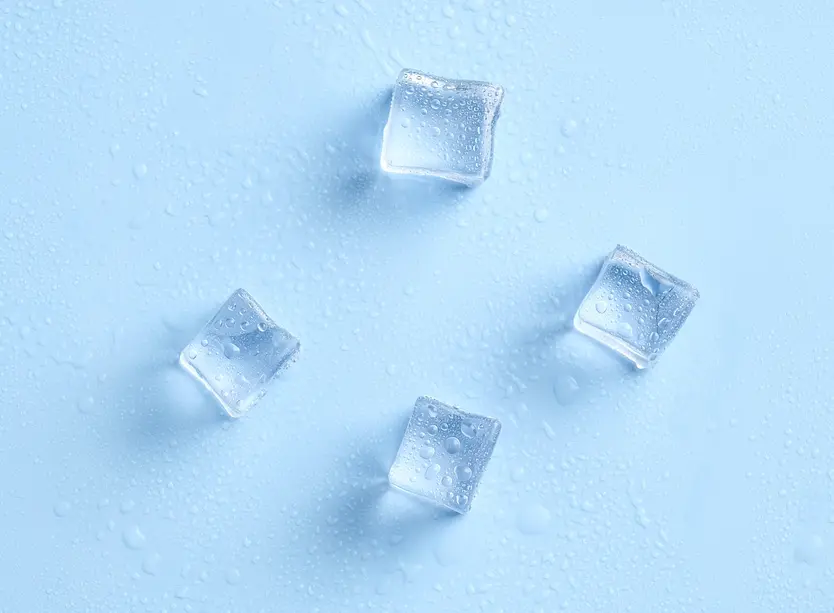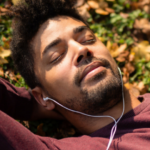From a dip in the ocean on a chilly morning to a tub topped up with ice from the servo — a growing number of people are using cold water therapy to fend off stress (or achieve other claimed wellbeing benefits). So, we’re looking at the evidence on ice baths and whether you should go Wim Hof to wind down.
Wait, who’s Wim Hof?
Wim Hof (also known as The Iceman) is somewhat of a celebrity in the cold therapy space. Renowned for his ability to withstand low temperatures, he’s created a program based on the health benefits he’s gleaned. The Wim Hof Method involves breathing exercises and cold exposure through ice baths.
What is cold therapy?
Hof has led the resurgence in ice baths but it’s by no means a new idea — cold therapy dates back thousands of years. Cold therapy, also called cryotherapy, is when you expose your body to cold temperatures for therapeutic reasons. This can be done in various ways including cold showers, ice baths, swimming in cold water, applying ice packs or standing outside in the cold. Cold water immersion is specifically immersing your body in ice water for about 5 to 15 minutes. Most proponents advise that water should be around 15 degrees Celsius.
What are the benefits of cold therapy?
Its fans claim that regularly exposing the body to cold can boost the immune system, improve mental health, enhance libido, burn calories and reduce stress. And professional athletes have been using the method to reduce muscle soreness for years. But does the science stack up?
Cold water immersion therapy could be slightly better for muscle soreness, compared to doing nothing. However, another study says cold water immersion after resistance training could inhibit strength gains and muscle growth. A few studies suggest that regular exposure to cold can be an effective treatment of chronic autoimmune inflammation, reduce cholesterol and help stress regulation. However, the same people putting themselves through a session of shivering are also likely to be physically active, getting plenty of social interaction, keeping a positive mindset and staying on top of their stress, meaning it might not be the ice baths causing all those benefits, but a mix of healthy habits.
A review found that cold water immersion can reduce or transform body fat, which can be protective against diabetes and cardiovascular disease, and there’s promising evidence for its effects on the immune system and its tolerance to stress and respiratory infections.
But overall, more evidence is needed.
What are the dangers of ice baths?
There are several ways cold therapy can go wrong.
The most obvious is hypothermia — ice baths can cause your body temperature to drop dangerously low, which can lead to organ failure. Sudden immersion in cold water can also shock your body and lead to increased breathing, heart rate and blood pressure. This shock response can set off the instinct to gasp and hyperventilate, increasing your risk of drowning. It can also put stress on your heart. Other downsides can include ice burn and cold-induced rashes.
If you’re keen to try cold exposure
Build up your tolerance gradually and don’t stay submerged for more than 10 or 15 minutes. If you have a heart or lung condition, speak to your doctor before attempting.
“But with all new trends, we can tend to believe they are the answer to all of our problems, or that the more of it we do — the better,” psychologist Beau Growcott says. “I am mindful of any intervention that encourages men to expose their body to pain, or fosters men ’numbing’ themselves. Masculinity has historically been measured on occasion, by men’s ability to endure pain, which fosters an insensitive relationship to their own bodies and ultimately, insensitivity to their own feelings.”
Ultimately, Growcott says any stress management strategy is only as useful if it’s used and the popularity of ice baths contribute to their effectiveness.
“I’d like it to lead to a conversation about the causes of stress and the amount of stress we should expect or ‘manage’, in addition to techniques of managing stress. Too much focus on ’stress management’ can imply that with the right techniques, no amount of stress is unmanageable, which is definitely not true.















